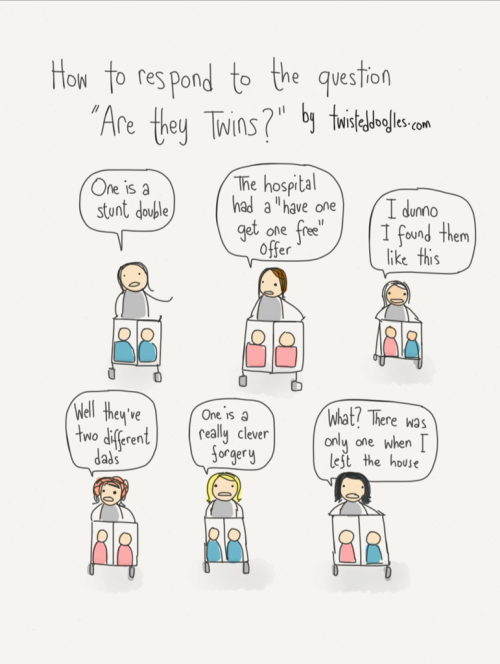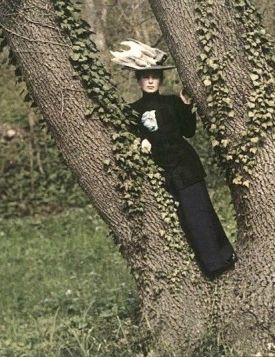Most of these will look familiar. I still have a thing for angels, apparently.
"The Ten Thousand Houses of Irene Domovika" (Started: August 2018) - Fresh from her bath, Irene Domovika lounges on a Louis XVI settee in the spacious ballroom of her house on South King Street. Her damp hair lays coiled over one shoulder like a streak of white paint. The sofa is short and square, its back and arms all of a height, the moss-colored upholstery two shades darker than her silk robe. In that white, cavernous space, the upholstery and the silk are the only soft things.
“Rampion" (Started: March 2017) – Never mind how I came to B----. It’s a small tourist town in the Canadian Rockies. My previous experience of mountains had been the Ozarks, the Blue Ridge of Tennessee--nothing on so grand a scale. I signed the book as Crowchild, as I’d planned to since I saw the name on a street sign out of the airport. “Laurence,” said the woman at the front desk, “that’s an odd name for a woman.”
“The Devil’s Verse” (Started: August 2016) – I’m thinking it’s finished. I'm driving north through the toy city of Sausalito, houses perched on the hills like doll's cottages just out of reach, and my hands on the steering wheel look like someone else's, nails too long and knuckles blue with tension. My tattoos strike me, as they often do, as if they belonged to a stranger. Her book is open on the passenger seat beside me, one of those novels where something terrible happens in the middle.
“Rockettown: A Haunting” (Started: 2014) – For the rest of September, into October, the skies were empty: bare slates of dry blue, untouched by a shred of cloud. The silence gave my mother headaches.
“The Resurrection Dogs” (Started: 2013) – When I took the job in S-------berg, it had been eighteen months since my father died, and six months since Rainer kicked me out of our shared apartment.
“The Shadow of Thy Perfect Bliss” (Started: 2013) – The gamblers show up around midnight, pestering Theophile to take the angel out of its cage.
“Waxwidow and Tallowbride” (Started: 2012/2015) – It was a sailors’ story first. Come back from a year and a half at sea, come back to your wife or your lover or the bosom friend at your hearth, and find that something is amiss.
“Hail Horrors, Hail Infernal World” [alt. title: "That Dismal Clime"] (Started: 2012) – Deborah Milton wakes to find the angel reading her papers. Deborah is not the daughter of the poet, although perhaps if she didn't share his name and her name she would not be where she is now, at a large research university in the middle of a small rural town, stalled on a dissertation about Paradise Lost. Maybe she would be working for the phone company like her mother, who does not share her name with a poet. In any case, she would not be staring now into the mouth of the angel, at the black throat behind its double rows of teeth.
“Hollow Engines” (Started: 2012) – The exorcist is sweating blood on the church’s front steps. Pinkish semicircles of damp blossom beneath her arms and her white tee-shirt clings to her spine in a blade-like triangle of rust. Tendrils of indeterminately dark hair plaster themselves to her forehead. She is looking out over the valley, past the red dust road, the clear snowmelt creek and the train tracks, down into the sea of yellow birch and alder trees and wispy clouds curling up like smoke. The angel Baraquiel rolls slowly through the mountains, a thundercloud with blue lightning at its heart.
"The Maiden Without Hands" (Started: 2011) – No first line yet. The Seven Years' War, with Nephilim.
“The Dead Women of Bajos Court” (Started: 2010) – Four dead women live in the white houses at the end of Bajos Court. The stucco in their walls is old and dry, lifting away from the cool brick underneath, and the fountain in the middle of the courtyard leaks through its fresh coat of blue tile and cement. If you were to look down at the court, the leaking fountain and the flaking stucco, you might find it hard to imagine that you stood only a dozen feet away from dance clubs with blacklights and saltwater aquariums, music pulsing until four in the morning, when the first trace of sunlight is glinting over the Mediterranean. The whole city is like this: Old and new abutting. Creatures nesting wherever they can find room.
“The Unbinding of Artemis O.” (Started: 2010) – No first line yet. A magician, her apprentice, and the escape artist she's married to conduct an unorthodox experiment.
"The Ten Thousand Houses of Irene Domovika" (Started: August 2018) - Fresh from her bath, Irene Domovika lounges on a Louis XVI settee in the spacious ballroom of her house on South King Street. Her damp hair lays coiled over one shoulder like a streak of white paint. The sofa is short and square, its back and arms all of a height, the moss-colored upholstery two shades darker than her silk robe. In that white, cavernous space, the upholstery and the silk are the only soft things.
“Rampion" (Started: March 2017) – Never mind how I came to B----. It’s a small tourist town in the Canadian Rockies. My previous experience of mountains had been the Ozarks, the Blue Ridge of Tennessee--nothing on so grand a scale. I signed the book as Crowchild, as I’d planned to since I saw the name on a street sign out of the airport. “Laurence,” said the woman at the front desk, “that’s an odd name for a woman.”
“The Devil’s Verse” (Started: August 2016) – I’m thinking it’s finished. I'm driving north through the toy city of Sausalito, houses perched on the hills like doll's cottages just out of reach, and my hands on the steering wheel look like someone else's, nails too long and knuckles blue with tension. My tattoos strike me, as they often do, as if they belonged to a stranger. Her book is open on the passenger seat beside me, one of those novels where something terrible happens in the middle.
“Rockettown: A Haunting” (Started: 2014) – For the rest of September, into October, the skies were empty: bare slates of dry blue, untouched by a shred of cloud. The silence gave my mother headaches.
“The Resurrection Dogs” (Started: 2013) – When I took the job in S-------berg, it had been eighteen months since my father died, and six months since Rainer kicked me out of our shared apartment.
“The Shadow of Thy Perfect Bliss” (Started: 2013) – The gamblers show up around midnight, pestering Theophile to take the angel out of its cage.
“Waxwidow and Tallowbride” (Started: 2012/2015) – It was a sailors’ story first. Come back from a year and a half at sea, come back to your wife or your lover or the bosom friend at your hearth, and find that something is amiss.
“Hail Horrors, Hail Infernal World” [alt. title: "That Dismal Clime"] (Started: 2012) – Deborah Milton wakes to find the angel reading her papers. Deborah is not the daughter of the poet, although perhaps if she didn't share his name and her name she would not be where she is now, at a large research university in the middle of a small rural town, stalled on a dissertation about Paradise Lost. Maybe she would be working for the phone company like her mother, who does not share her name with a poet. In any case, she would not be staring now into the mouth of the angel, at the black throat behind its double rows of teeth.
“Hollow Engines” (Started: 2012) – The exorcist is sweating blood on the church’s front steps. Pinkish semicircles of damp blossom beneath her arms and her white tee-shirt clings to her spine in a blade-like triangle of rust. Tendrils of indeterminately dark hair plaster themselves to her forehead. She is looking out over the valley, past the red dust road, the clear snowmelt creek and the train tracks, down into the sea of yellow birch and alder trees and wispy clouds curling up like smoke. The angel Baraquiel rolls slowly through the mountains, a thundercloud with blue lightning at its heart.
"The Maiden Without Hands" (Started: 2011) – No first line yet. The Seven Years' War, with Nephilim.
“The Dead Women of Bajos Court” (Started: 2010) – Four dead women live in the white houses at the end of Bajos Court. The stucco in their walls is old and dry, lifting away from the cool brick underneath, and the fountain in the middle of the courtyard leaks through its fresh coat of blue tile and cement. If you were to look down at the court, the leaking fountain and the flaking stucco, you might find it hard to imagine that you stood only a dozen feet away from dance clubs with blacklights and saltwater aquariums, music pulsing until four in the morning, when the first trace of sunlight is glinting over the Mediterranean. The whole city is like this: Old and new abutting. Creatures nesting wherever they can find room.
“The Unbinding of Artemis O.” (Started: 2010) – No first line yet. A magician, her apprentice, and the escape artist she's married to conduct an unorthodox experiment.
Tuesday, June 18, 2019





